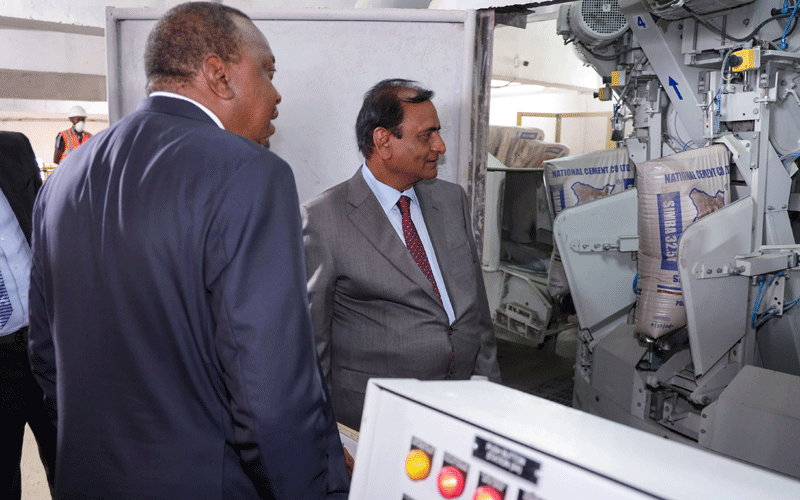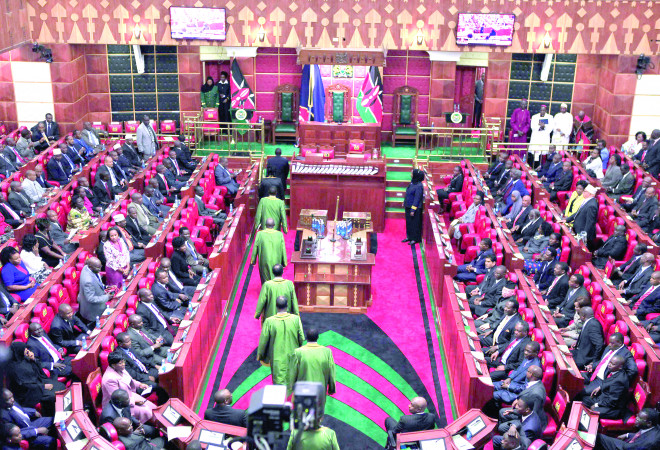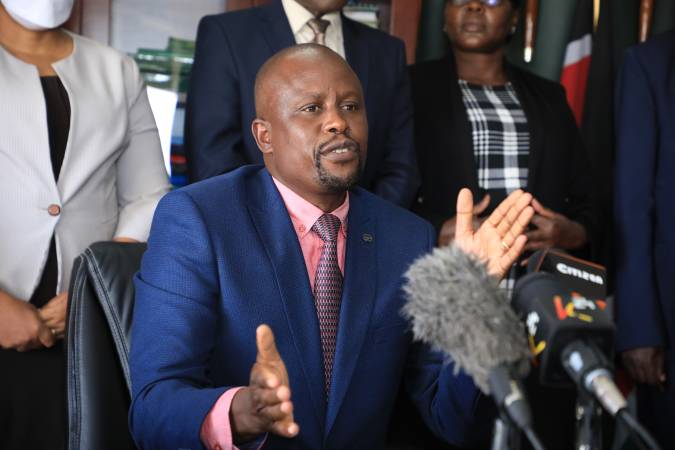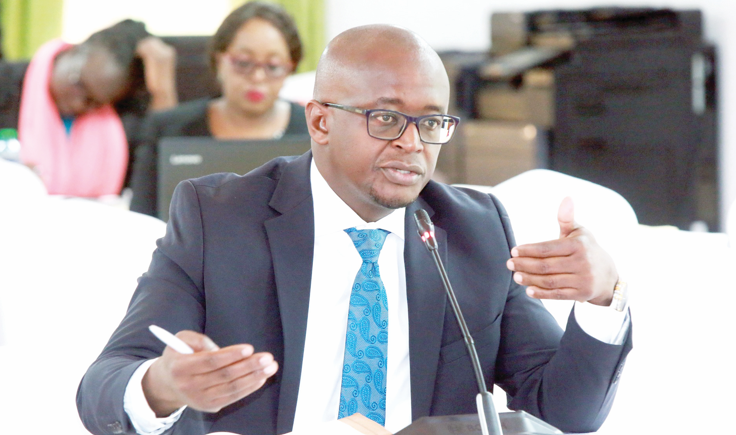Devki boss urges State to tame clinker imports

Devki Group chairman Narendra Raval (Guru) has petitioned the government to impose a duty of at least 25 per cent on importation of raw material for cement production to support growth of the local cement industry and jobs.
Raval, who was Speaking during the opening of Devki Group’s Sh5.8 billion Simba Cement Factory in Salgaa in the outskirts of Nakuru, said Kenya has enough clinker to meet local demand and imposing duty or a total ban of clinker importation would protect local industries from competition, create more jobs for Kenyans, and save the country billions of shillings in foreign exchange annually.
“Taming clinker imports will also reduce cement prices and encourage more Kenyans to build affordable houses.
We urge the government to impose a duty of 25 per cent or more on clinker importation from September this year or ban clinker importation like the Tanzania government to protect local industries and create more jobs for the Kenyan people,” Raval told President Uhuru Kenyatta, who officially opened the factory, yesterday.
Kenya Imports approximately two million tonnes of clinker annually, which drains more than Sh10 billion from the country in foreign exchange every year.
Big Four
President Kenyatta said efforts to revive the manufacturing sector, a key pillar in Jubilee’s transformative agenda, were bearing fruit following the opening up of industries in various parts of the country.
Uhuru said that apart from creating employment, the new plant would reduce the cost of construction.
The company, which has currently employed 6,200 people in its Machakos, Kajiado, Kilifi and West Pokot factories would absorb an additional 700 people once the new plant in Nakuru starts operations.
Describing Devki Group as a strategic partner in the transformative agenda, Uhuru said the company embodies the best of Kenya’s entrepreneurial spirit having started with a small shop in Gikomba in the 1980s.
“Their story is filled with hope and inspiration and nobody would have imagined the heights in which they would rise and the great impact they would have on our on our economy,” he said adding that the company was a key partner in fulfilling the Big Four agenda particularly in manufacturing and affordable housing.
“Opening factories closer to the people will bring down building and transport costs,” the President said.
Historically, industrialisation was centred in Nairobi and Mombasa but it is penetrating new frontiers and gradually transforming the country while attracting investors to various parts of the country, he said.
Devki Group will also construct a second clinker line in Emali, Kajiado that will increase the group’s total capacity to 3.5 million tonnes of clinker annually.
The Nakuru plant has a production capacity of 750,000 tonnes and is currently the biggest investment in the county.
Its second phase, expected to be complete this year, will increase production capacity to 1.5 million tonnes.
Employment opportunities
Raval said they chose Nakuru due to its geographical location and the fact that it connects Kenya and other East African countries such as Uganda, Rwanda and Congo.
Nakuru Governor Lee Kinyanjui lauded the move saying that the factory would employ locals.
He said Nakuru dwellers would be able to sell their raw materials to the factory which would in turn generate revenue for both tiers of government.











